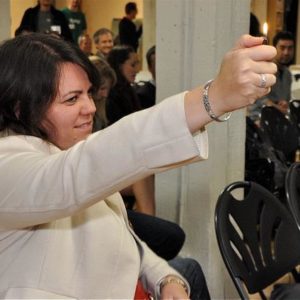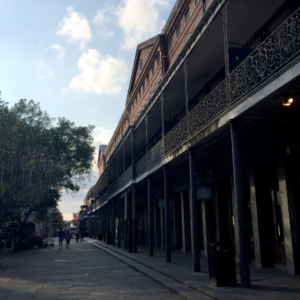Brexit: What it Means to an American Teenager

Before starting my internship at CircleClick this summer, I spent two weeks on a scholastic sightseeing tour through—part of what was and what is still—Europe. During my visit in June, I fell witness to one of the most historically significant events of the 21st century. You might be thinking I’m talking about England’s tragic (1-2) loss to Iceland in the EuroCup, however this is a much more serious situation. On June 23, citizens of the United Kingdom voted on whether to leave or remain part of the European Union. On June 24, when the poll results came in, the answers were split in half: leave won 52% to 48% with 30 million voters in total and a 71.8% turnout.
When I first heard news of the split, I had no clue what this any of this “referendum” nonsense meant. To gain an understanding, I searched “Brexit” on Google. I learned that it is simply an abbreviation of the words “British exit”. Interested about this topic, I decided to continue exploring…
So what happens now?
The Prime Minister will need to spawn an agreement known as Article 50 of the Lisbon Treaty. A treaty which states “Any Member State may decide to withdraw from the Union in accordance with its own constitutional requirements.”
Who wanted to leave the European Union?
The UK Independence Party, lead by Nigel Farage, campaigned for Britain’s exit from the EU.
What were the reasons for wanting to leave?
People of the Independence party believed that the European Union was holding Britain back. There were too many rules imposed on business and membership fees were expensive for the amount they were getting in return. Independents also wanted full control of their borders and to reduce the amount of immigrants entering Britain.
Why did others want to remain part of the European Union?
The non- independents believe that staying in the EU would make business with other Union members easier. They also argued that the immigrants who travel to Britain fuel economic growth and contribute in paying for public services.
After gaining knowledge of the abbreviation, I searched “#Brexit” on Twitter.
The first tweet to appear is breaking news of an arising economic crisis.
– #Brexit vote
– £ at 1985 low
– Shares plunge
– Oil around $47
– Yen surges
– Gold soarshttps://t.co/71imyPn7zV pic.twitter.com/XkzFw1GSMd— Bloomberg (@business) June 24, 2016
The next post to catch my eye talks about the unforeseen plummet in traveling prices.
Britain is now massively cheaper for tourists after #Brexit vote sends the pound lower https://t.co/0rqndzLo1T pic.twitter.com/feIOh96pGT
— Bloomberg (@business) June 24, 2016
My next read came as a shock to me and the rest of the United Kingdom as Prime Minister Cameron decides to resign from his position, passing the torch to the next best qualified successor after serving for six years.
Read the Prime Minister’s full statement following the result of the EU referendum https://t.co/CHhL1YvdJs
— UK Prime Minister (@Number10gov) June 24, 2016
Curious about the Twitter analytics after the referendum was put in place, I found an article written by The Daily Record. It is estimated that “approximately 13,330 tweets were sent per minute as the Prime Minister made his speech following the historic decision to leave… “
Once I collected as much information as I could through social media platforms, I decided to gain insight from a local. I spoke to the owner of family- run store known as “The Tea House” located in Covent Garden, London, who admitted she was upset about the split.
“My family moved from France to London when I was a child and I have spent most of my life in England. The thought of having to leave or getting a visa to live here breaks my heart. UKIP is tearing the country apart economically and emotionally. The United Kingdom has Nigel Farage and the United States has…” Well, you know who.
Visiting the United Kingdom at such a politically powerful time was an experience I will never forget. The opportunity to travel across the world at such a young age has opened my eyes and given me a different insight on the world.


